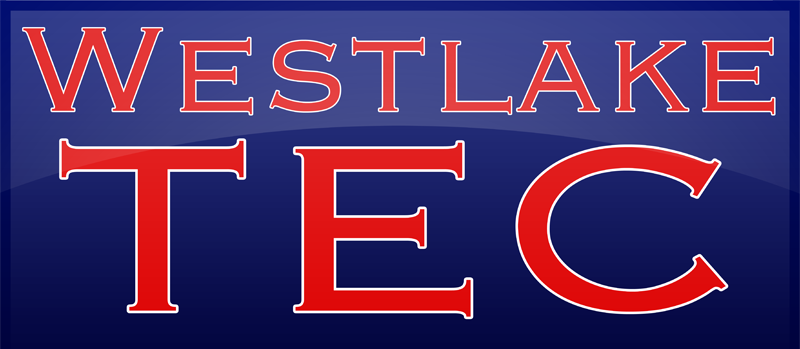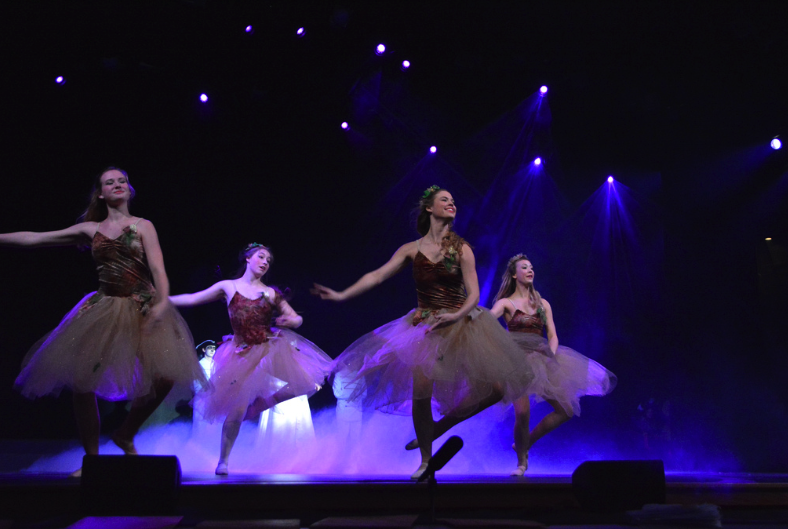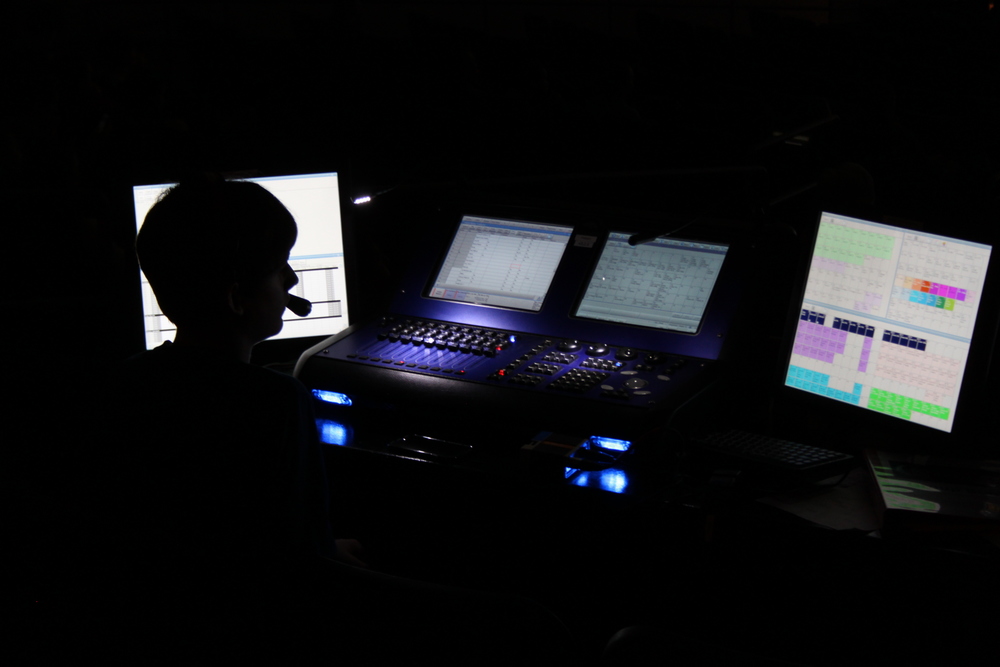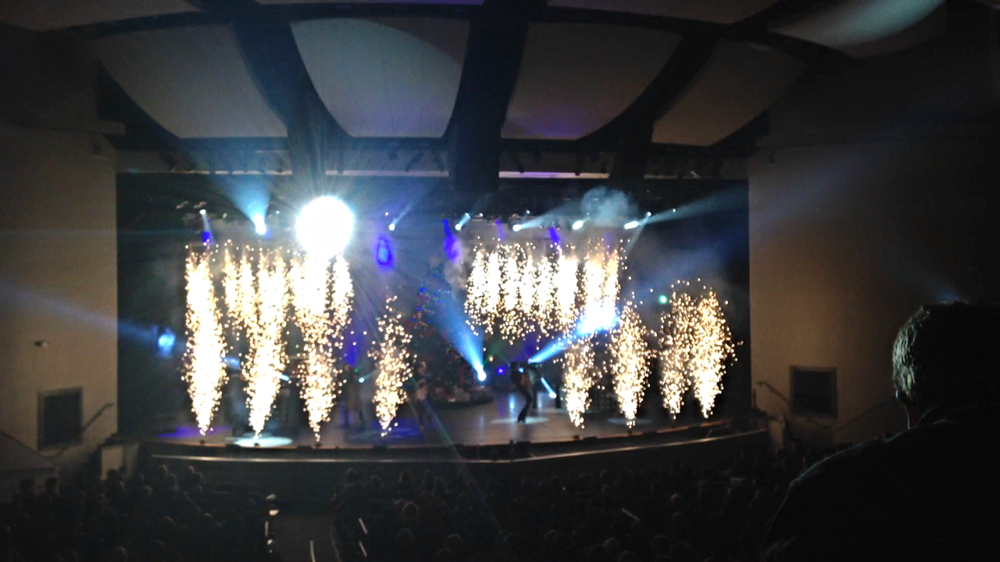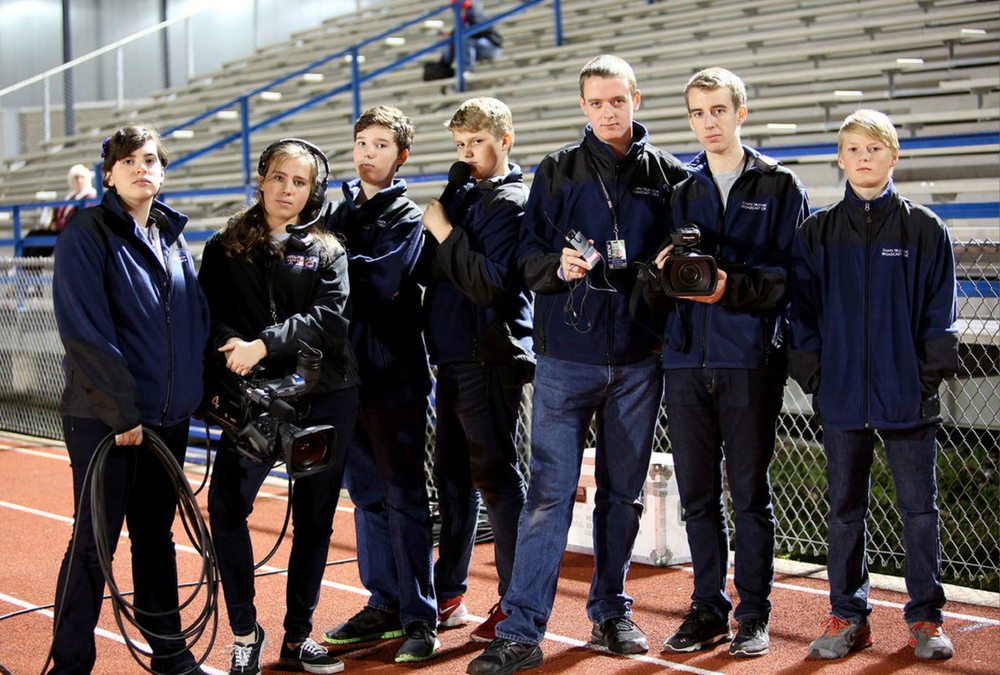By: Irena Martinez
Earlier this semester, I had the privilege of stage managing this year's musical: West Side Story. Stage managing was certainly an experience I never expected to have. I joined TEC as a sophomore, a year later than most, and always felt like it was too late to be considered to stage manage. Usually, a small group of students are chosen as underclassmen then tested and trained to determine whether or not they would be a suitable stage manager for a future major production. This usually makes it clear who will be stage managing what shows throughout the year. This fact led me to assume any hopes of stage managing a major production were shot, as I was a senior who had no prior experience of any kind.
The day I found out about stage managing was towards the end of December, while at dinner with a few TEC members and alumni. The alumni were asking who was stage managing the musical. We were all curious since no one knew except Feroz. After a bit of pestering, Feroz caved in and pointed at the stage manager. I followed his finger expecting it to be someone else, but he was pointing at me. I could only think "What? I'm stage managing? Me? That makes no sense at all." But, it was true. I had been chosen.
I may never know exactly what I did to earn this position, but I can tell you one thing. The last day of Nutcracker: December 14th, 2013, sparked a chain reaction that changed everything.
During Nutcracker, I was positioned as the head of grip crew. As a crew head, I took my duties list as well as the previous year's notes and did my best to ensure that my crew was taken care of and that the production ran as smoothly as possible. That night, I was chosen as the best crew head, an award whose recipient is voted on by their fellow crew heads. I was ecstatic to say the least. That energy drove me through a fantastic final show after which we began strike*, as always. I was on autopilot, my sole mission to get the crew dismissed as quickly as humanly possible. Suddenly, my name was called out over radio. I found the voice's owner surrounded by a small group of parents. The adults turned to look at me, bearing a look upon their faces that no one should ever witness. A look that guaranteed one thing and one thing only: something horrible had taken place.
They told me something happened to my mom. My heart sank. Every possible worst-case scenario raced through my mind. Seeing how panicked I had become, they escorted me to the office for some privacy and told me everything. My mom had a major seizure while in Houston and was hospitalized. She was transported there via ambulance from a nearby restaurant where the seizure had taken place. The doctors had determined that the seizure was caused by cherry-sized mass found in her right frontal lobe (later removed and diagnosed as malignant - stage four glioblastoma, a form of brain cancer). At this point, everything felt uncertain, but one thing was clear, I was in no shape to continue the strike.
After going to a friend's house, I was able to calm down and collect my thoughts. I happened to remember that the admissions decisions for MIT Early Action applicants had coincidentally come out on December 14th as well. Initially, I refused to look, but it honestly felt like the night couldn't get any worse, so why not just get it over with? I was expecting the typical "you've been rejected" spiel, but got this instead:
(Insert top of decision portal letter)
It took me a few reads to really grasp the message hidden within the text. I thought I had read it wrong until my friend started screaming and hugged me, causing a ruckus that surprisingly did not wake her family up. It turns out that MIT really liked something about me and chose me as one of their 618 Early Action admits out of the 6,820 applicants.
Who knew so much could happen in one day? December 14th, 2013 was both the best and worst day of my life so far. Definitely a weird day. So weird, that I wouldn't think it possible if I hadn't lived it myself.
These past couple of months, so much has changed and, at times, it's been overwhelming. At first, Mr. Poole and I wondered if it would be wise for me to take on such an intensive role for the musical. My mom was sick and I needed to take care of both her and myself. However, before we even considered any alternatives, more people than I can name began taking care of us, making it possible for me to focus my extra energy on stage managing. I can never thank those people enough.
Though I was wary coming into stage managing a massive production like West Side Story, it was definitely worthwhile. I've seen my friends stage manage before, but I still wasn't exactly sure what to expect. It's just one of those things you can't grasp until you've done it yourself. The most obvious thing a stage manager does is call cues from the cue book. Simple enough, right? Well, not exactly. You have to construct each statement in a way that conveys you are sure of yourself and always be prepared for what's coming up next. If the cue, follow spot, scene change, or sound effect doesn't go off, it's not the operator's fault -- it's yours. That's the toughest lesson to learn. It's so easy to be frustrated with someone else for not being ready, but it was ultimately your responsibility to make them ready. It's not possible for your crew to memorize an entire script and the cues that coincide with it in a week (or ever, really). As the stage manager, you have the only copy with light cues that's in use, so you have to help your crew out. Also, you have to remember what's really important. An early light cue isn't the end of the world. Chances are no one even noticed anyway. The most important thing is your crew. Are they having fun? Staying healthy? Doing their homework? Of course, you can't possibly monitor forty people and take care of all of the behind the scenes logistics, let alone yourself, without some help.
Fortunately, I had just the right people. Each crew was headed by one of my closest friends and the effect on the production itself was fascinating. This show was unique because it ran so smoothly both in a technical sense and within the crew. In the face of uncertainty, this show was something that could be certain. I'm grateful to have just been a part of it.
-Irena Martinez
*strike is the process of taking apart the set after a production has ended.

